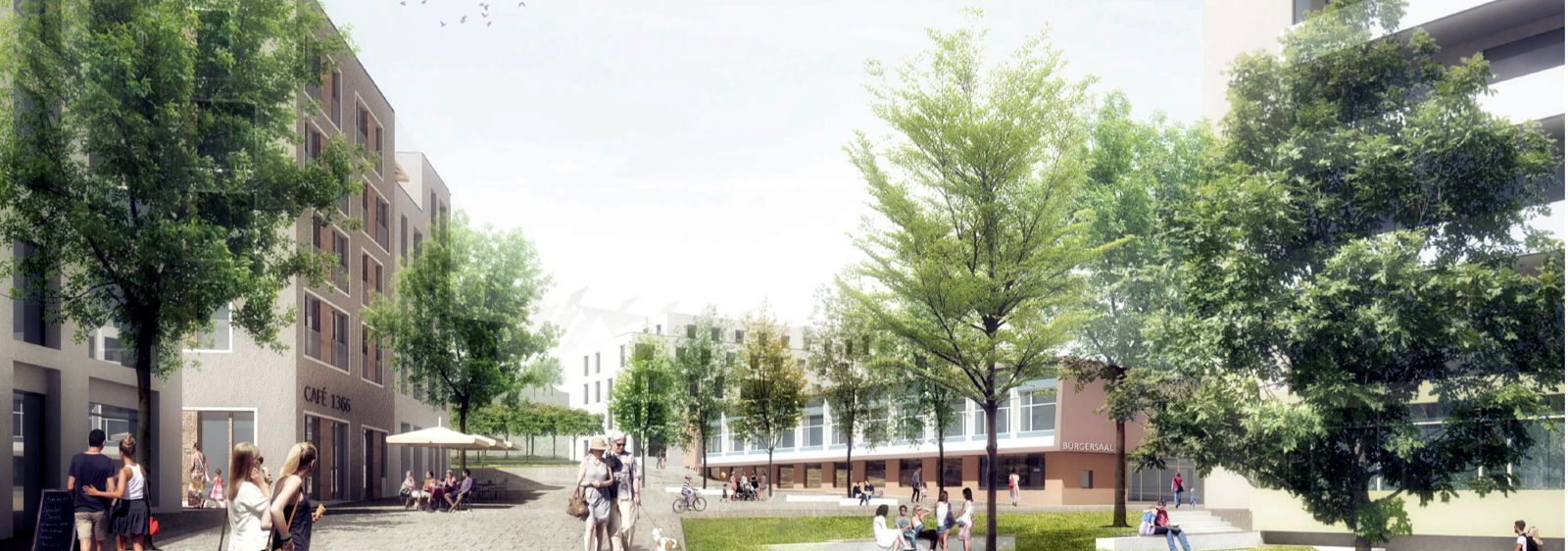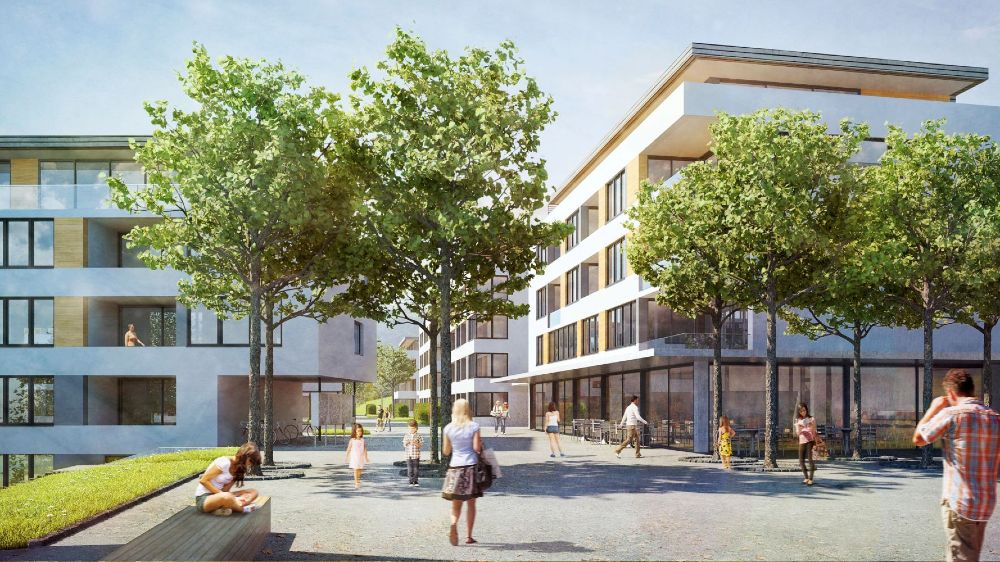
Urban redevelopment
Socially responsible climate-neutral development of districts
The state capital Stuttgart and the city of Überlingen are cooperating in the research project "Stadtquartier 2050 - solving challenges together". Its aim is to create affordable, climate-neutral living space in the conversion and development of two districts. Both municipalities face similar tasks, which they approach in different ways. The systematic approach makes it possible to use the experience gained in the demonstration districts in each other's cities.
The cooperation project involves a total of 960 residential units and a total investment of 190 million euros. Stuttgart is participating with the area around the former Bürgerhospital, which is to be partly refurbished, partly demolished and newly developed. In Überlingen, the local building cooperative wants to redevelop an existing urban periphery and expand it with a construction site with around 170 apartments.
As different as the two districts may appear at first glance, the aim is the same - both are to be supplied with climate-neutral heat and electricity by 2050 and offer affordable living space. To this end, the existing buildings are to be refurbished in terms of energy efficiency and the new buildings are to be constructed to the plus energy standard. A local heating supply is planned, which integrates local renewable energy sources and is supplemented by thermal and electrical storage facilities. While Überlingen focuses on thermal insulation, Stuttgart focuses on a highly efficient energy supply. But here, too, high demands are placed on refurbishment and new construction. The synergy effect for both cities lies in the fact that findings from the inner-city Bürgerhospital can be transferred to future inner-city projects in Überlingen, as well as findings from suburban development in Überlingen to future projects in more rural parts of the city of Stuttgart.

Multiplication effect desired
The cross-city cooperation makes it possible to compare the economic efficiency, energy requirements and ecological balance of the different approaches. It also makes it possible to compare the technologies in terms of their susceptibility to faults and their user-friendliness. A city platform is planned for the direct exchange of experiences and results from the demonstration districts. In this way they can be better transferred to each other's municipalities. The systematic project approach also makes it possible for other municipalities to benefit from the experience in the long term.
Involving users
In addition to the purely structural and technical measures, the residents themselves are also involved in the projects. The social science work also pursues different focal points. These include, among other things, coordination processes with the monument protection authority, the inclusion of apartment owners in the district redevelopment and the topic of "socially acceptable and warm-rent neutral redevelopment".
For example, the researchers are developing a district app that will provide users with detailed information on their energy consumption and recommendations for action and reward energy-conscious behaviour via a bonus system. This regular feedback on the consequences of one's own actions is intended to avoid rebound effects.

